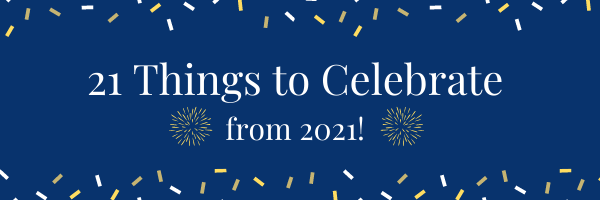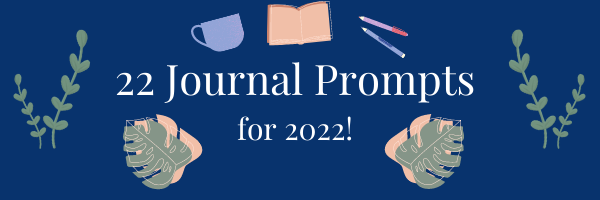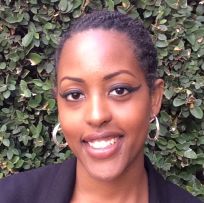“That’s all anybody can do right now. Live. Hold out. Survive. I don’t know whether good times are coming back again. But I know that won’t matter if we don’t survive these times.”
Octavia Butler, Parable of the Sower
As we enter into December, we acknowledge: December is the darkest time of the year with the fewest hours of sunlight; the news about the state of the world with climate change, the pandemic, and racial division and oppression continues to overshadow the everyday joy and beauty of our lives; the holiday season can be hard, lonely, and fraught for so many people.
How, then, can we turn toward the light, tap into hope and empathy for ourselves and others, and cultivate our resilience to endure and overcome the seemingly insurmountable?
Currently, I am reflecting on how closely tied identity safety and resilience are to each other. We must cultivate our own resilience in order to navigate spaces that aren’t always identity safe for us. And when we affirm our diverse, multifaceted, imperfect identities in order to counteract negative biases and stereotypes, we flex our resiliency muscle.
As humans, we have a strong negativity bias, meaning that our brains process negative stimuli more quickly and for longer than positive stimuli. Thus, we hold onto negative moments and experiences more deeply than we do positive ones. In other words, we can have a fantastic day full of personal and professional successes and accolades, and yet if one negative, challenging thing happens during that day, we will probably hone in on that negative experience and dismiss all of the positive things that happened. Focusing on the negative has been an evolutionary human survival mechanism that no longer serves us in today’s modern world; not everything that is new and different should be perceived as a threat.
And while our negativity bias towards ourselves and our experiences is necessary to counter, we also have a strong negativity bias toward people who are different from us. Over and over again, in my ongoing reading and learning about identity, difference, bias, and belonging, I see the common theme of dehumanization of others who are different from us as a symptom and cause of systemic racism and oppression across social identities. We are more likely to act on our biases when we are triggered or stressed out because the thinking, reflective, decision-making part of our brains gets hijacked by our limbic system and sends us into a stress response of fight, flight, or freeze. And our out-group bias gets particularly “over-activated” to the point where we dehumanize “others” (through our language and/or actions) when we are worried or stressed about access to resources for ourselves and members of our in-group, whether those resources be money, power and influence, food and clean water, living wage jobs, a good education, healthcare and medicine, or even…toilet paper.
This is especially important to keep in mind as many of us may soon find ourselves in stressful holiday gatherings with family, friends, or neighbors that might trigger a stress response. How do we hold on to a strong sense of self and our values and beliefs without dehumanizing ourselves or others who don’t share our perspectives?
Thus, identity safety for ourselves and others is crucial to combating our negativity bias, especially as we move into a particularly stressful time of the year. Here are some useful strategies for cultivating empathy, hope, and resilience:
In her book, Onward: Cultivating Emotional Resilience in Educators, Elena Aguilar discusses retraining our brains to focus on the “bright spots” as one way to counteract this negativity bias. By this, she does not mean engaging in toxic positivity, which ignores or dismisses negative feelings and experiences and elevates a positive mindset above all else. Instead she outlines five practices to help your brain focus on the “bright spots”:
In Burnout: The Secret to Unlocking the Stress Cycle by Emily Nagoski and Amelia Nagoski, the authors talk about “positive reappraisal”- reframing difficulties as opportunities for growth and learning. They also provide a script to help process stressful situations and cultivate resilience: “Even though I couldn’t control________ (adversity), I managed to ___________ (survival tactic), and then I used____________(resource) to grow stronger. After that, I could __________ (skill, win, insight).” They offer other nuggets of wisdom to keep in mind:
The Greater Good Science Center’s article on Eight Keys to Bridging our Differences talks about bridging differences in ways that creates space for each person’s humanity. We can disagree without disparaging and dehumanizing each other. We can ask questions and suspend judgment. In her book, Braving Wilderness, Brené Brown also talks about civility as a strategy for navigating hard conversations in ways that preserve self. She quotes Cassandra Dahnke and Tomas Spath and their definition of civility: “…claiming and caring for one’s identity, needs, and beliefs without degrading someone else’s in the process…disagreeing without disrespect, seeking common ground as a starting point for dialogue about differences, listening past one’s preconceptions, and teaching others to do the same.”
We hope these ideas and strategies for creating identity safety for yourself and others and cultivating resilience help fortify you for these winter months. Wishing you peace, grace, and hope as we head toward a new year!
With gratitude for Anti-Bias Educators everywhere,
Rebecca Slaby
AMAZEworks Executive Director

2021 brought new challenges, but it also demonstrated the power of resilience. To counter our negativity bias as we reflect on the past year, we curated a list of 21 Things to Celebrate from 2021. In this list, we highlight Minnesota community members and organizations; media that shifted our world outlook; quotes we held close; and more celebrations that impacted us. We hope this list helps you remember collective and individual moments of joy, growth, and celebration from 2021.

Transitioning into a new year, we often engage in self reflection and strive for personal growth as we set resolutions. AMAZEworks hopes to help cultivate this reflection through this list of 22 journal prompts to guide you through reflections on identity for 2022. Thinking back to five practices from Elena Aguilar’s Onward: Cultivating Emotional Resilience in Educators to help our brains focus on the “bright spots,” we hope these journal prompts on Identity Safety set up the practices of Setting Intentions, Taking an Inquiry Stance, Engaging in Appreciative Inquiry, Dealing with Emotions, and Reflecting and Gaining Clarity. We encourage you to engage in these questions on your own and also share with family, students, friends, and community members.
As we near the end of a second year of the COVID-19 pandemic, we would like to take a moment to reflect on another devastating pandemic that began in the early 1980s. According to UNAIDS, “78 million people have become infected with HIV and 35 million have died from AIDS-related illnesses” since scientists and medical personnel were first alerted to a new, mysterious, and highly deadly virus. To put the level of loss into a perspective that we now can all understand, it is like having a COVID-19 pandemic that lasts for 40 years.
Unfortunately, the history of AIDS in the United States is inextricably linked to homophobia. Labeled as a “gay disease” for the first several years, thousands of lives were lost, due to inaction and indifference from political and medical systems. It wasn’t until famed actor Rock Hudson died of AIDS in 1985 that significant attention was finally given to the crisis. Hudson, viewed by fans as the embodiment of heterosexual masculinity, had many secret same-sex relationships. The fact that he, and those around him, felt compelled to hide this, illustrates the lack of identity safety that so many homosexuals felt at that time.
AMAZEworks has two new resources available for educators and caregivers of children ages 3-12. Each book set is $85 and contains five books on the focused identity. Free lessons on Native American/Indigenous and Latino/Latina/Latinx identities and lived experiences are available in the AMAZEworks Resource Hub to help guide conversations with children about the topics discussed in each book. Give the gift of AMAZE this holiday season!
AMAZEworks has an amazing board of directors. We have been lucky to have the leadership, service, and expertise of Ryan, Yelena, and Carrie who will be completing their terms at the end of 2021. We are grateful for all that they brought to the AMAZEworks team. Here are a few highlights:

Thank you, Ryan!
Thank you, Yelena!


Thank you, Carrie!